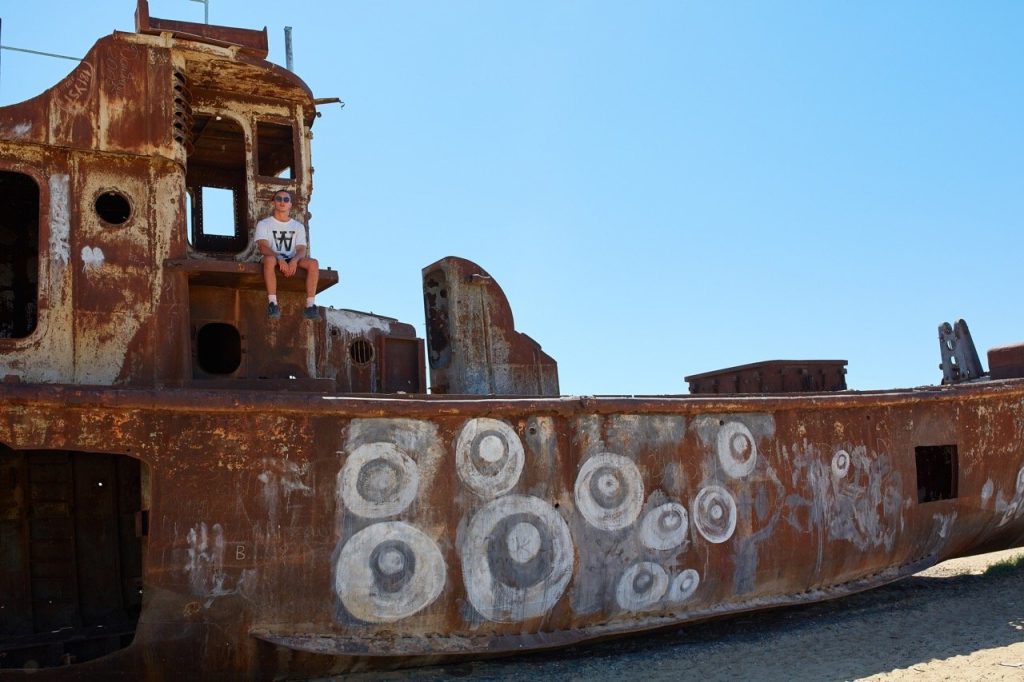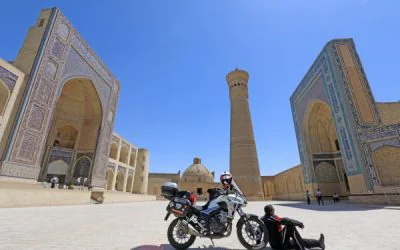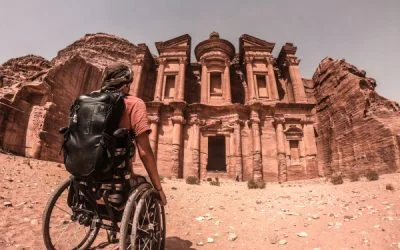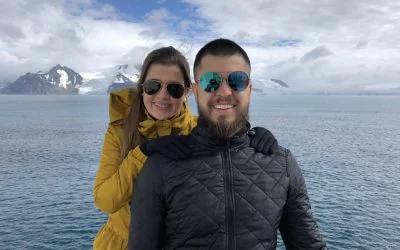Billy Offland is a 24-year-old from Manchester, UK who was fortunate enough to travel extensively with his family from a young age. He became addicted to the sense of adventure and learned three main lessons from his early travel experiences: to travel with a purpose or lens, to view travel as education, and to understand that travel is not the be-all and end-all of life.
These lessons have shaped his solo travels, which have focused on nature and environmental protection. He sees travel as a tool to enhance his perspectives and apply his experiences to his studies and everyday life.
Tracking Tigers and Rhinos with the Nepal Tiger Trust, Chitwan NP
Billy, tell us something about your early life and how your fascination with travel began.
I’m Billy, 24 from Manchester, UK. I was incredibly fortunate that my parents did not see having kids as an obstacle to travel and so once or twice a year we would take up to a month off to go on a crazy adventure my Dad had been planning since we got back from the last one.
Trips like Papua New Guinea, Bougainville and the Solomon Islands; taking the boat to Kawthoung in Myanmar and Sailing up the Mergui Archipelago on a (barely) converted trawler; Safari around Niassa in Mozambique before going off to Bazaruto, to name just a few (and yes, we absolutely love islands).
From day dot, my experience of travelling was unconventional by most normal standards but for us, it was what we did and the four of us would be constantly on the move trying to make the most of whatever time we could get off.
I guess I do not need to go into too much detail about how this inspired me, most of you who will read this will know that once you expose yourselves to travel like this you never want to stop; travelling is addictive and I become hooked on this sense of adventure from a very young age, inherited from my dad. Reflecting on it all though, there were three main lessons I took from this early travel into my solo travels and which should make a little bit more sense throughout this Q&A.
1. Travel with a purpose / a lens: Deciding where we went next was informed by our ethos of ‘see a place before it’s ‘ruined’’. What this meant was to reach and experience places before the onset of cultural homogenisation, often due to the detrimental impacts of mass tourism; inspired by the changes in Indonesia since my dad’s travel there in the ’80s (not saying this is all negative!).
Recently, I’ve been travelling with a focus on nature and what we can do to protect it, I guess ‘seeing a place before it’s ‘ruined’’ also relates to the environment too.
2. Travel is Education: For my parents, kids were not an obstacle. Persuading our school to lets us have a week off either side of the holidays, was. Our trips were sold to school as a different type of education, one that we could not get in the classroom. This taught me to constantly view travel as one big lesson and to see how I can use these experiences to better myself in my day-to-day life and future career.
3. Travel is not the be-all and end-all: At age 15, the summer holidays had finished, I landed back from North Korea that morning and was in the classroom 10 minutes after form time had started. My form tutor was convinced that I meant South rather than North and no one else really had a clue. No one was that bothered, or so I thought, it was just what us Offlands did.
So, I had to come home and just crack back on with normal life. Travel was a tool, it made my life more fulfilling, and it formed and enhanced my perspectives. For me, it was not ‘normal’ life nor was it my whole life.
Normal life was back in Manchester where I could consolidate everything I had encountered across my travels and apply it to my studies, either as case studies as part of my course work in school and university or simply knowing how to treat different people and how to get the most out of every experience.
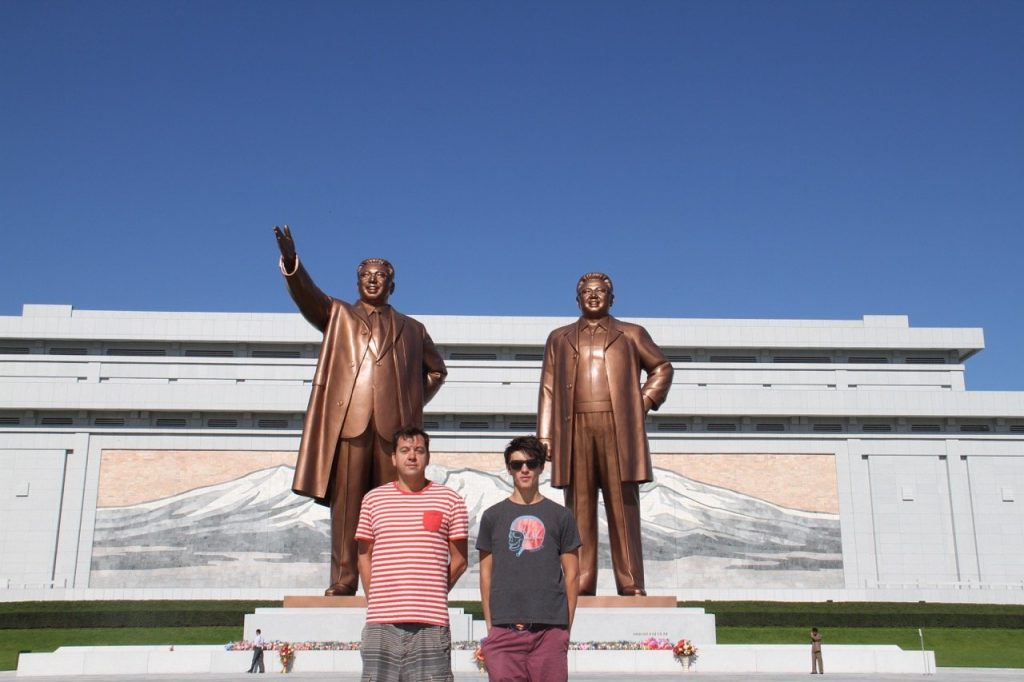
You’re going to be one of the youngest people to reach 193. What urged you to do this feat and what have you learned from trying to get there?
For me, the opportunity came around in the form of a project intending to get a global perspective on the current biodiversity crisis during my undergraduate degree in Sustainability and Environmental Management (or SEM) at The University of Leeds.
As an aside, my whole inspiration for choosing this degree originated from my travels. As I mentioned before, we are island people, so I spent a disproportionate amount of time playing in and below the waves.
I remember this first realisation of environmental destruction, comparing 2 similar habitats in varying states of disrepair; there were the Andaman & Nicobar Islands, in the Indian Ocean, with some of the most colourful and beautiful reefs I have seen to this day, and then the Lakshadweep Islands which had recently undergone a devastating El Niño event which left a graveyard, devoid of life and excitement.
As a young teenager, these troubling images stayed with me. When I was 18, seeing what the realities were on the front lines, what people were doing about it and what I could do about it, was all I wanted to do.
So, I ran off to Principe to work for the Principe Trust in Conservation; to get my divemaster and do some marine conservation research in Madagascar and to slowly move around Indonesia and Malaysia seeking out those last bastions of pristine reef environments (at 1.5degrees of warming 99% of reefs will experience unrecoverable heatwaves [El Niño Events – of the kind I witnessed in the Lakshadweep Islands] by 2030) – Best diving spots for me were Raja Ampat, Sipadan and Bunaken!
Anyway, that’s how I came to be studying SEM, but the project for 193… Combine inspiration from the IPBES ‘Global Assessment’ (a million species could go extinct within the coming decades – headline); the opportunity to do a ‘Year in Industry’ which I extended to 2 years; some dissertation research; an opportunity to travel, with a focus, around the world, and my ‘World Conservation Journey’ was born.
Before starting I had already visited more than 100 countries and what became apparent further down the line was that with my 2-year time scale, if I was to take the project seriously, really get this global perspective, and get real information from real people on the ground in places I had not been to before, then I would be one of the youngest to have reached the goal of visiting nearly every country in the world – and that was a nice little motivator to keep going when it got tough (and trust me it did).
What did I learn? This is a question! I want to break it down into 2 segments, environmental things and personal things.
Environmental: The loss of biodiversity, charismatic megafauna, primary forest, and general habitat, is no joke. It is happening, and it is serious. Keeping our wild areas wild, intact areas intact and greening our urban environments HAS to be a priority not just because there is an intrinsic right for these species to thrive, but because it is integral for our and our future generation’s survival, well-being, livelihoods, culture and identity.
The good news is that so many amazing people have shared their time, expertise and passions with me. I have learnt that these mavericks from every country in the world are committing their lives to save what they love and with the right support these people, communities, and collectives can contribute to positive change! For those of us fortunate enough to be able to travel regularly, we also have power.
One example is that National Parks and protected areas exist and can protect biodiversity because of the money that we spend visiting! It is also our responsibility to travel consciously with a positive impact.
Personal: There are the basics – the fact that the overwhelming majority of people in this world are kind and welcoming, and the only luxury I need for comfort is some form of primal shelter (a realisation that came after spending a night sleeping under a rock overhang, wedged uncomfortably between some smaller rocks and wrapped only in a thin sleeping bag liner in Gola Rainforest National Park in Sierra Leone).
But for me, one of the most important lessons is the importance of tapping into local knowledge. As you’ll see, I’m not the most organised traveller with specific places I need to see in each place. Being fluid and being willing to ask people for tips, tricks, advice and information on the road massively took the pressure off me having to plan things to the nth degree and allowed me to experience things in a way I would never have been able to otherwise.
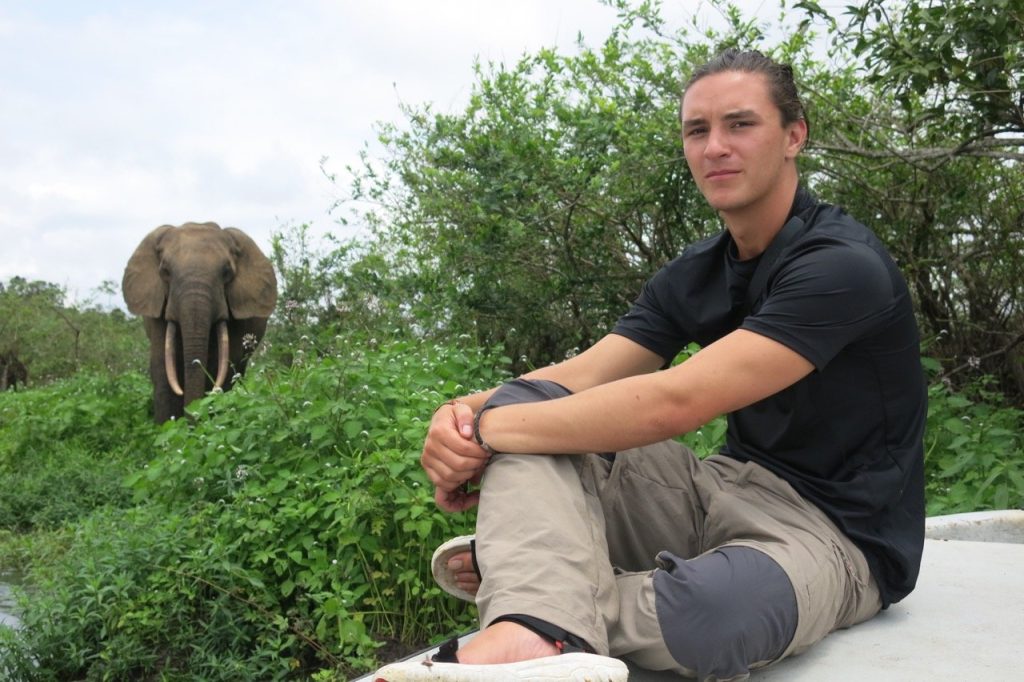
Some people say that ‘rushing’ to do 193 at a young age like yours is pointless and gimmicky, not real travel. What would you respond to that?
Hahahaha! For context, it has taken me 24 years to get to this point and I think I might have spent around 35 months over the last 5 years travelling so I guess I’ve done a lot and been so fortunate to spend so much time on the road with a catalogue of diaries, memories and friends to show for it. It’s not exactly like I have retired either, if anything I’m even more excited about doing certain trips than ever before!
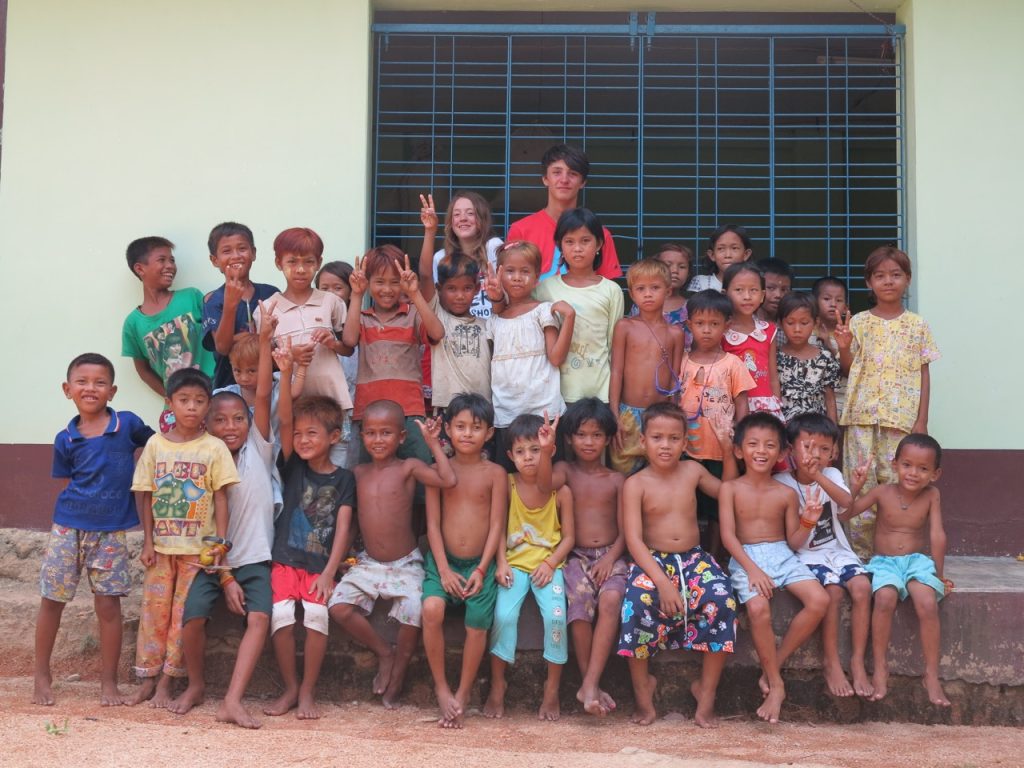
What is your general style of travel? (solo/group, land/air, budget/luxury, planned/spontaneous etc)
Apart from the Offland family classics, since I was 18, the majority of my travel has been independent, solo, long-form, backpacking trips on a budget which are spontaneous and freeform but have direction. Hostels, Couchsurfing or staying wherever there’s a somewhat ‘shelter’; public transport, shared taxis, back of motorbikes; street food and local eateries and spending as much time as possible away from cities and out in nature. This is my style of travel!
I have always travelled trying to coherently link places together in one line or loop with a pet hate of staying in one place for too long and going back on myself (to be avoided at all costs!).
What came first the chicken or the egg… my love of travelling by land, an environmental conscience, or always wanting to travel in an efficient way. Travelling by land is the best! When it is planned right you might not spend many days in every single country but you get a lot of value. In most countries taking a flight out means you can often be hesitant to stray too far away from the main capital area but when you travel overland, you get to see so much which might not necessarily be along the usual ‘trail’.
A couple of examples from my travels, crossing overland out of Burundi so travelling down the entirety of Lake Tanganyika through Tanzania stopping at the jaw-dropping Mahale Mountains National Park to see the chimps; getting the boat from Azerbaijan to Turkmenistan and covering from Turkmenbashi to Konya Urgench by public transport in a couple of days to make it to a techno festival at the ships graveyard in the Aral Sea in Uzbekistan and spending some days winding through the northwest of Bangladesh to get into Nepal via Darjeeling.
I guess my ethos is planning where I go in a country based on the overall trip I want to do instead of planning my trip based on where I want to go in a country. If you have not already, I can only recommend trying some land-based travel, especially by public transport which I use 99% of the time. It’s cheap, you meet people, it’s environmentally sound and it’s fun!
One of my favourite experiences which might sum up how I move, is my visit to Kiribati. I arrived in Tarawa without realising it was a Friday, which meant that I could not have any conservation meetings until Monday (I learned to hate weekends). Realising that there was no need to be on the main island (normal rules apply, try and get as far out as possible) I stood at the ticketing desk for an hour getting the staff to help me decide where I could get to and where I could stay.
Within 2 hours, I was sitting in front of my overwater bungalow on Abaiang Island, one of the most beautiful places ever!
Although the pandemic presented additional obstacles, apart from delaying my mission for a year, it thankfully did not stop my travels (I had visited 75 new countries since it began). The whole situation, as you can imagine, made my usual penchant for land border crossings impossible (some were notoriously challenging but possible with a bit of work, luck and perseverance…).
Regardless, through planning it right and even changing multiple continents I did no more than 6 flights over 4 hours long, which I was very proud of. The biggest challenge though was uncertainty, and this made our travelling communities more important than ever! Pre-pandemic you could almost guarantee that information a couple of years old was valid but I often found myself second-guessing reports only made a week before. This fits into my spontaneous nature very well!
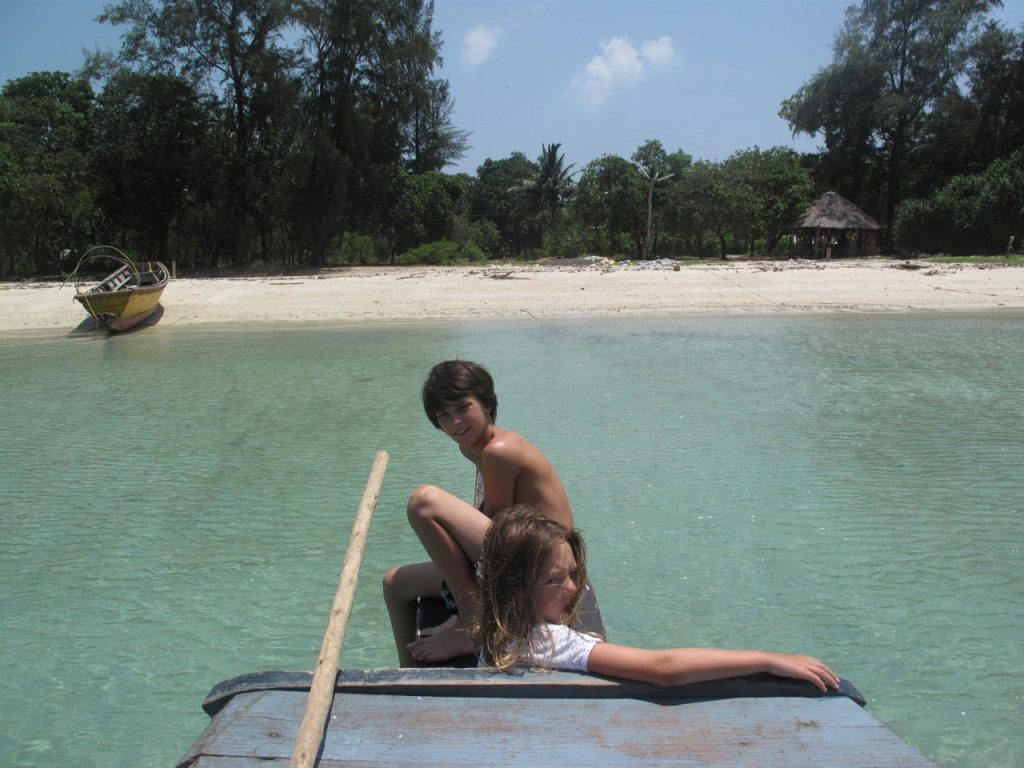
Which countries surprised you most, positively or negatively?
Andorra & Georgia – The mountains in both completely blew me away. I remember almost running up to the glacier in Kazbegi (Georgia) after leaving late in the morning and having to make it back in time to stream the Manchester United match. The way up was non-stop but, on the way down I had to stop about 3 times to sit on rocks and just absorb the beauty that opened up in front of me – a hiking trip in Georgia is heavily on my list.
Algeria & Mauritania – I guess much like the mountains, the Sahara is another environment where you cannot help but feel isolated and insignificant compared to the vastness that mother nature has created. Always I will be fascinated by and in awe of the communities and cultures which call these areas home.
Algeria’s credentials should come as no surprise to anyone anymore but Tassili N’ajjer National Park in the south-eastern corner, close to the borders with Libya and Niger has to be a must.
I never saw myself as a desert person. It’s an environment largely devoid of the stimuli that usually get my travelling senses tingling; the overtness of biodiversity and nature everywhere, compared to the impression that the desert regions are just sand and shrubs. Mauritania however blew those preconceptions right away.
A random choice for a university reading week break combining the classic trio of Mauritania, Senegal and, of course, Gambia, but my week in Mauritania, with its empty coastlines, and even emptier deserts but with such a rich and unique history – which doesn’t feel like it is too far in the past – places this country firmly up as one of my favourites… A camel adventure from Ouadane or Walatah to Mali should be a good reason to return.
Every country has its attributes that contribute to one’s lasting impression. Personally, I’m often reluctant to dwell on the negatives and I actually had a great time on this island, but I have to talk about Nauru. Rather abstractly, I see it as a microcosm of the rest of our world when viewing it through an environmental lens, and unfortunately, I could not believe the hopelessness I felt about the future of that country. The island is split into two layers, the coastal region and the ‘topside’.
Nauru, as well as being famous for the fact that no one goes there and that the majority of its Gross Domestic Product (a terrible indicator by the way) comes from housing refugees for Australia (I am definitely not an advocate for this system), was once the wealthiest country in the world (per capita) after its independence in 1968 thanks to its natural guano deposits which could be used for fertiliser.
The extraction is intrusive and foreign mining corporations, partnering with the Nauru government, had no qualms with decimating the majority of ‘topside’ leaving rocky pinnacles and no place for people or agriculture, a ‘moonscape’.
The money flowed and after holidays, luxury shopping trips and complete mismanagement of the sovereign wealth fund there was soon no more money. Instead, a scar on the landscape which meant that self-sufficiency, growing enough fresh food and having a sustainable future look almost impossible.
This does not sound like a great trade-off to me where greed once perpetuated, and lessons have not been learnt as Nauru is planning double down to become the new test-bed for deep-sea mining and rise again the Pacific predators. Let the rest of the world make more sensible and sustainable decisions because as shown here, nature is the backbone of our survival and when it ceases to exist, it ceases to provide.
Positive surprises there is the fact that there are free backyard gyms across the island which have housed Olympic medal-winning weightlifters and that Australian Rules Football is a big past-time.
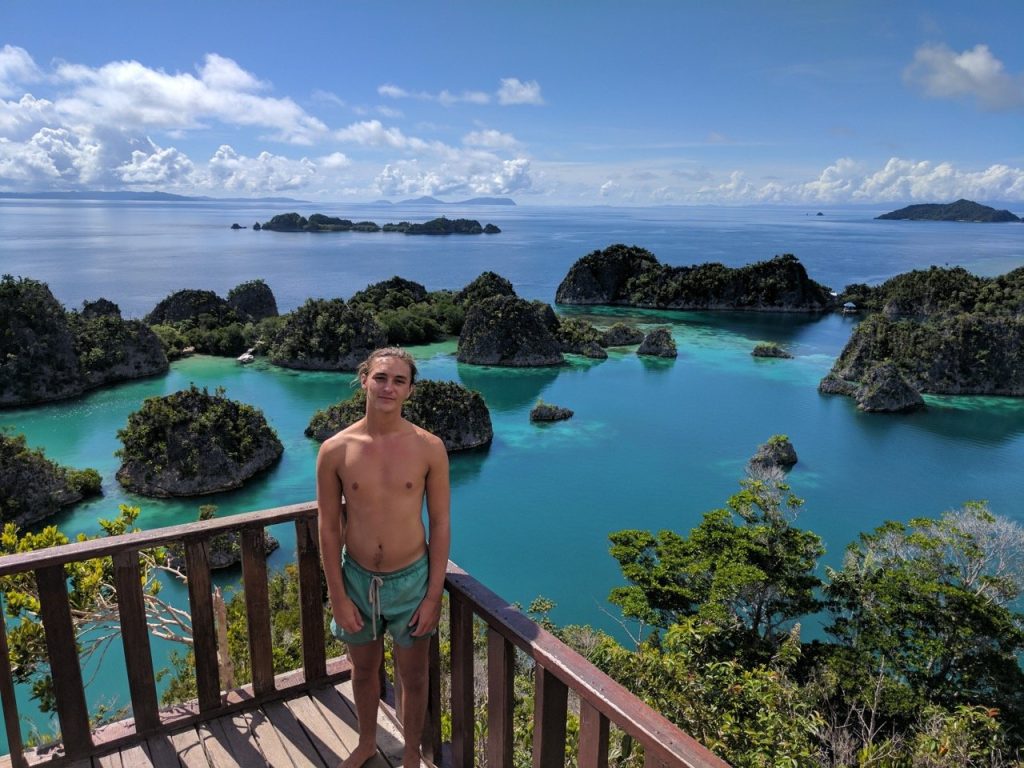
And what about specific places?
Dzangha-Baï, Dzangha-Sangha Protected Reserve, Central African Republic.
Hwange National Park in Zimbabwe was the first time I can safely say I was overrun by Elephants. The work that Dave and his team at Friends of Hwange have been doing to create available surface water year-round in the pans around the park to keep the elephants here and alive is nothing less than knighthood worthy.
Arriving back from a day of beers and safari with new friends, ready to bed down at Ngweshla Camp for a braai and probably some more beers, we were engulfed by a scene I only thought imaginable in a high-budget CGI movie. Running sable welcomed us into the clearing that reminded me of walking down Sir Matt Busby’s way on the way into Old Trafford on a Champions League night.
There was life everywhere. Zebras and wildebeest mixed in inconceivable numbers; hippo heads bopped in the water, their eyes wandering trying to steer clear of the animals that in a rich wilderness stood out and dominated the elephants. They were everywhere, we stopped our Land Rover and elephants swarmed around us like an aerodynamics test.
Groups were dotted as far as the eye could see, some moving in formation towards an unknown destination and others spraying each other with water and actively trying to aggravate those placid hippos. But what’s better than seeing all these elephants here? It’s seeing them in a place where you don’t usually expect it. The forest.
Savannah elephants and forest elephants, their main difference being the former smaller size but for us, the tourist, the difference is that you see one a lot easier and in far greater numbers. Forest parks by nature are normally intensely thick and whereas I find it a lot more immersive of an experience, by virtue of its density, animal spotting is a completely different ball game to that in the savannah (which can already be pretty hard).
However, not at Dzangha-Baï. A short bare-footed walk through the forest brought us to a large, stilted hide. Beyond here is the golden ticket, a natural forest clearing in which you’re almost guaranteed to be able to sit back for hours watching tens if not hundreds of forest elephants go about their business.
Hiding away silently amongst the treetops gives you a unique vantage point and insight into the life of the elephants, it’s like your personal, real-life screening of a BBC Natural History programme, where suddenly, if you look hard enough you start to see the personality and silly traits of each elephant and the relationships between them all. This must be the best place in the world to watch elephants (gorillas, chimps and bongos too if you’re lucky).
Raja Ampat, West Papua, Indonesia
It was on my list of the best diving spots in Indonesia. Hanging out at my other favourite diving spot in Bunaken, Sulawesi, I was warned against heading up there at that time of the year as “the weather is not good enough”, “the tides aren’t good enough” and “it will be a waste of money”. I was 19, stubborn (still am) and went anyway, albeit with lower expectations. What was under those waves I still cannot get my head around to this day.
The experience of clinging to a rock 20 metres below the surface watching 1000’s of tuna, jacks, trevallies, groupers, sharks and rays stationary, swimming against the current that was threatening to wash me away from one of the greatest dives I had ever done, still to this day stays unmatched.
Honourable mentions also go to:
Socotra – perhaps the best island in the world. Its diversity and uniqueness in landscapes and topography I best describe as a creator lumping a load of leftover features they used to create the rest of the world into an arbitrary location in the Arabian Sea.
Galapagos Islands – It shouldn’t be a surprise but the fact that if I wanted to, I could grab a bird without too much objection or go nose to nose with a sealion both in the water and on the pristine beaches means this spot really really lives up to expectation.
Easter Island – Those Moai are even more impressive in person!
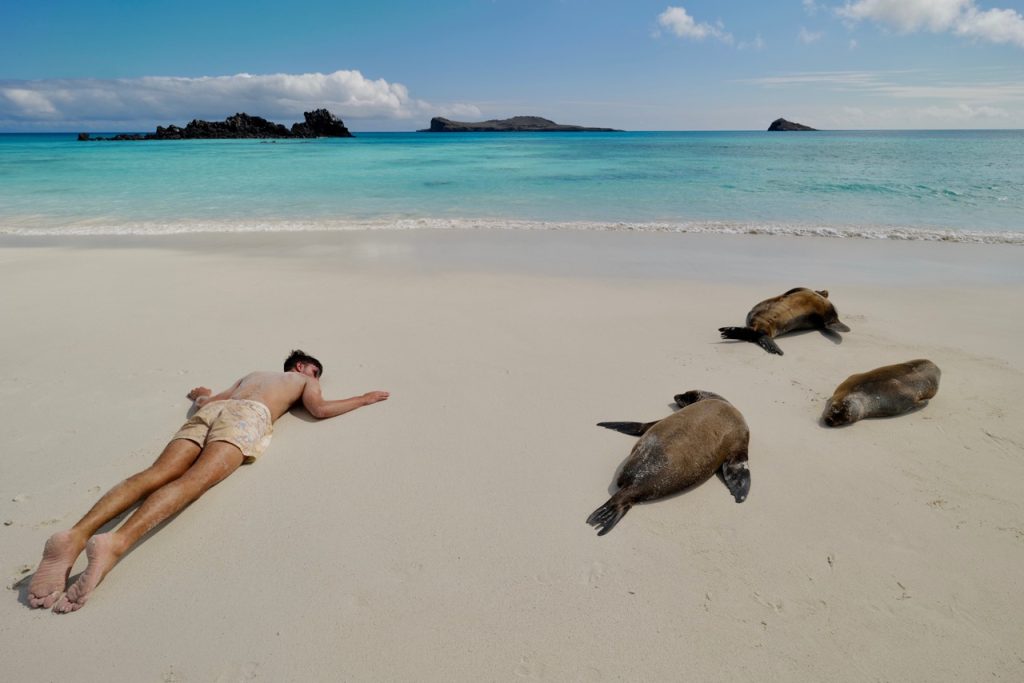
Tell us a couple of specific travel stories that really made a difference to you.
The first happened less than a month into my first solo backpacking trip around Indonesia at 19. Having had to live with my dad regaling us with tales of empty beaches and no tourists in Indonesia in the 80s for the first 19 years of my life, I unfurled the map to set my mission and try to find those Indonesian islands of today.
\With no mention in the guidebook and small reports online from passing sailboats I knew that perhaps the Anambas & Natuna Islands in the Riau archipelago sat in the middle of mainland Malaysia and Borneo – but somehow Indonesian – might be the closest I would get. For a month the sparse ferry schedule and waves dictated my life as I slowly moved clockwise from Letung to Tarempa, Natuna to Pulau Midai and then to mainland Borneo.
The jewel in the crown was after many failed crossings, setting my eyes on Pulau Laut the furthest north island in the group where I was told I was the first tourist to step foot on the island in two decades. For a week I explored the island and its beautiful fringing coral reefs by motorbike; through the quaint hamlets in the coconut groves and the stilt fishing villages on the water where I was offered turtle eggs whilst wearing a ‘Captura Zero’ t-shirt from my time in Principe, the irony.
I feel like I found what I was after, in Pulau Laut, life was perhaps as close to how my dad saw it in the 80s as was possible in the 21st century. However, what stayed with me most was what also nearly brought me to tears. After my many solo snorkelling trips along each corner of the island, it was a lonely green turtle swimming through an algae-infested graveyard of dynamited coral which took me over the edge.
Whereas, from the surface, the fringing reef looked like it would hold a box of treasure in the form of intact coral and thriving fish communities, instead my naïve expectations of remote communities had opened a pandora’s box of emotion about the impact that our carelessness and lack of awareness can have on our environment. I had to study this.
As a traveller though, undertaking a journey like this so early on as a solo backpacker really set me up for being by myself. It taught me how to survive when there is no infrastructure set up for tourists or even tourists themselves and when 99% of people there speak none of your language (thank God Bahasa is such an easy language to pick up).
More recently I did a journey from country #175-179, Angola to Cameroon. In a time when arguably travel has never been easier with all our tech and the plethora of travel blogs and groups like EPS and formally Thorntree (RIP), finding a route with very little information about how to do it the way that I want to is quite rare.
I found the challenge in the form of a budget, independent overland journey from Cabinda to Yaounde through Congo (Republic of) and the Central African Republic. As a traveller like we all are reading this, we have to be good at ‘making things happen’, especially if you’re going about it independently.
I had done a lot of this and especially travelling as much as I did through difficult terrain during covid, as well as learning to be incredibly flexible and responsive I had to become even better at making things happen including things embassy staff and many others said would be impossible (ahhhh that beautiful word).
This journey was just textbook that, so much easier to just say ‘sack it’ but after sketchy border crossings and confused guards, getting tracked by the secret police, and long and uncomfortable bus journeys across the entirety of The Congo it was all rewarded with hitchhiking on a park boat across the Sangha river; sunrise drives along metre-wide paths through the primary rainforest with a military motorbike man and an AK-47 strapped to his chest and; ultimately, Dzangha-Baï and the opportunity to hunt with the BaAka.
At each step of the way, I was guessing and hoping more than I did before, questioning whether I should’ve just somehow found $1000usd to cut out all the faff but it solidified for me that the challenge in travel is almost always worth it and that yes I got to where I wanted to go but without the knowledge and kindness of the local people who pointed me in the right direction, tried to interpret my terrible French and went out of their way to help me I would not have got anywhere and would not have had the amazing experience that I did.
For me, this was the biggest realisation. I have been so fortunate to do some amazing travelling and by some accounts that might make me a ‘good traveller’, but without all of those incredibly kind people along the way, none of it would have been possible, so really I owe so much to them.
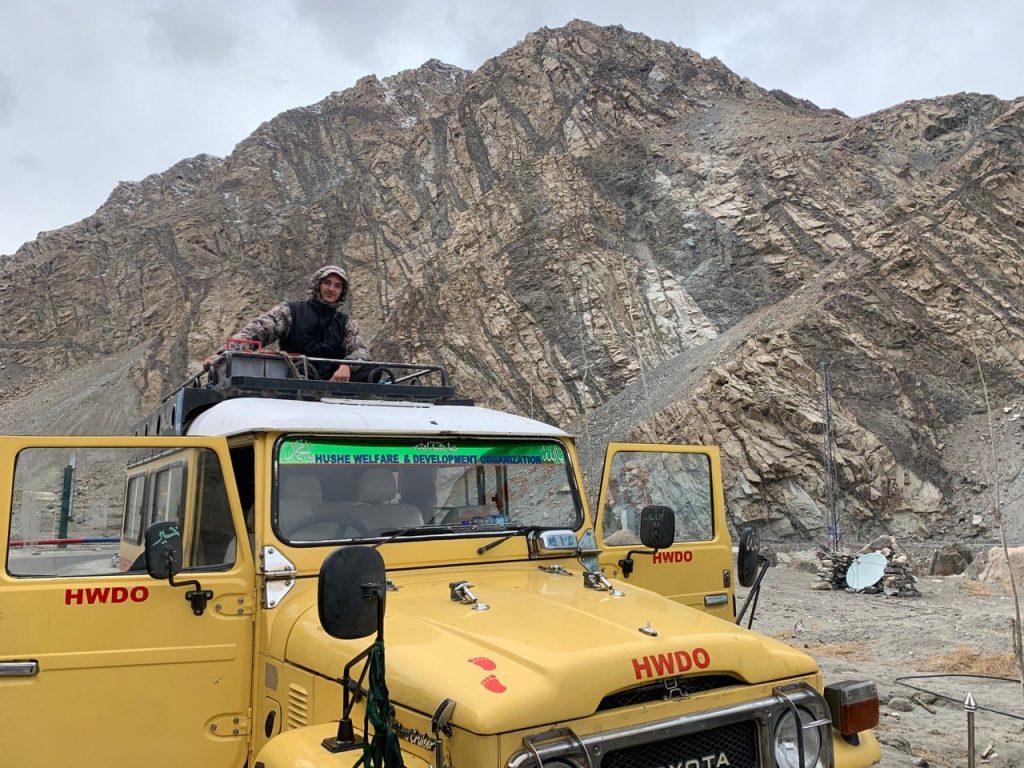
How have your friends and family reacted to your endeavour?
I am so lucky to have such great family and friends who support wholeheartedly the travel that I want to do so I have never once had to make a trade-off between the relationships that I love and the travel that I love, as much as everyone may get tired of hearing random anecdotes or out of the blue comments in the rave of “it sounds like a morning in Syria” as an ethereal hard drum tune with a floaty Arabic vocal gets dropped.
There is always the element of ridiculousness about telling someone that you have pretty much been to every country in the world though and weirdly sometimes I hesitate to do so. As I alluded to before, I do not want to be defined by the travelling I have done but rather by how I have used the lessons that I have learnt throughout these adventures to make me a better person who can have the most impact on this planet.
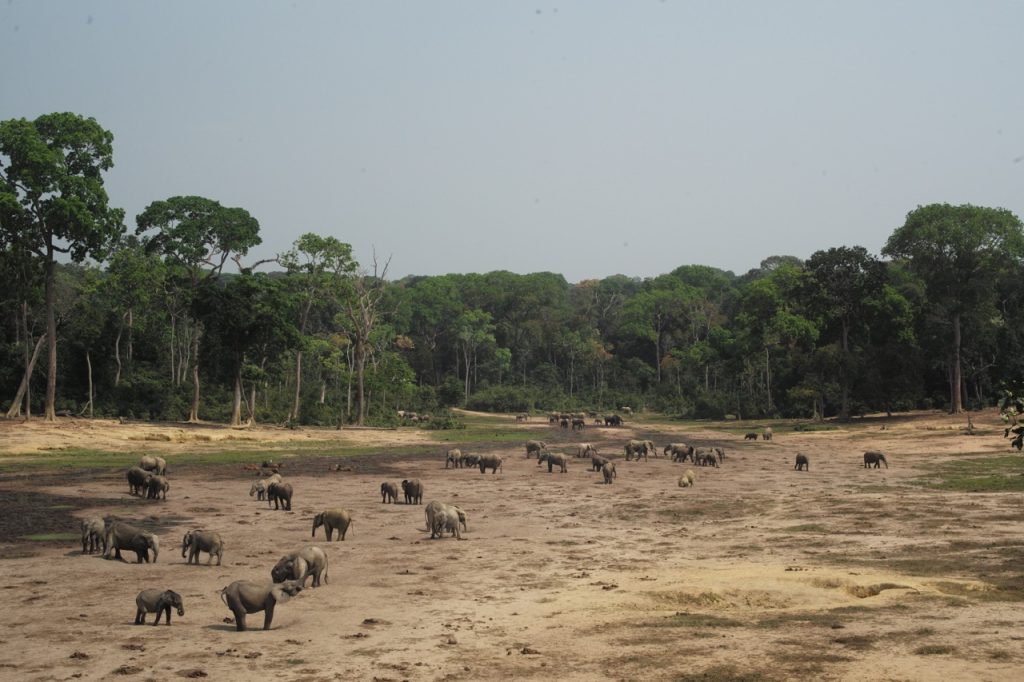
And what next, once you reach 193?
The great thing is that I’m only 24 so I almost have a whole lifetime of travel ahead of me. Now that I don’t have to spend all my free time trying to travel to every country in the world, I can be selective about the places that I really enjoyed and travel to those that truly resonated with me and the things that I love doing. So, I recently wrote up a list of 40 trips or things to do in countries which should give me some direction for a very long time!
More immediately, I’m in the final stages of prepping to head off to Pakistani Kashmir for 6 months to make a documentary about Beekeeping and Sustainable Development which I am so excited about. Now that I have to properly get back into ‘normal’ life and try to find a career, having an opportunity to do work that I love, using so many of the skills and tricks I have picked up throughout my travels, in an area that I adore, is a dream come true.
Also, people always ask me what my favourite countries are and one staple which always seems to make people laugh and get the conversation going is that ‘anything ending in a -stan is a big yes!’. Pakistan could not be a better place for me to return to first.
Overall, post 193 (or 197 as I call it) hopefully means loads more travel, even more, intrepid than before but still always continuing to meet mavericks and learn from them to better be able to communicate what’s happening on the front lines of our biodiversity crisis.
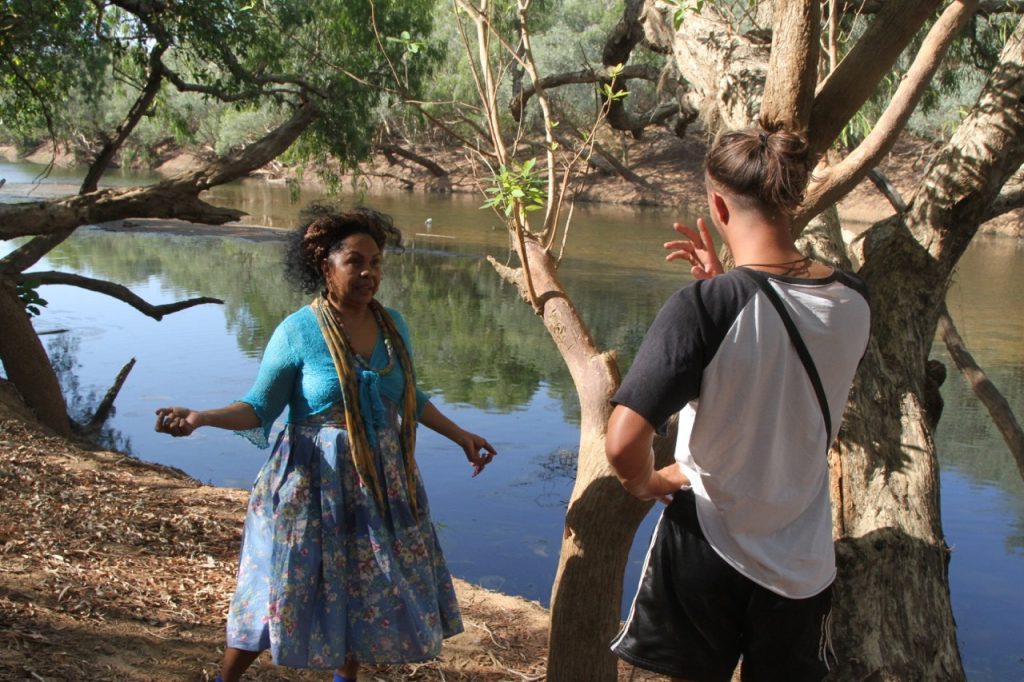
What advice would you give to yourself five years ago based on what you know now?
– Get Libya and Eritrea visited AS SOON AS POSSIBLE because then you will be the youngest boy to travel to every country in the world and that would be quite cool!
– When you visit Kiribati send a message to the conservation people on Facebook rather than by email because they will see that message and they will tell you that someone has chartered a plane that you can jump on going to the Phoenix Islands which is described as having waters like they were a thousand years ago!
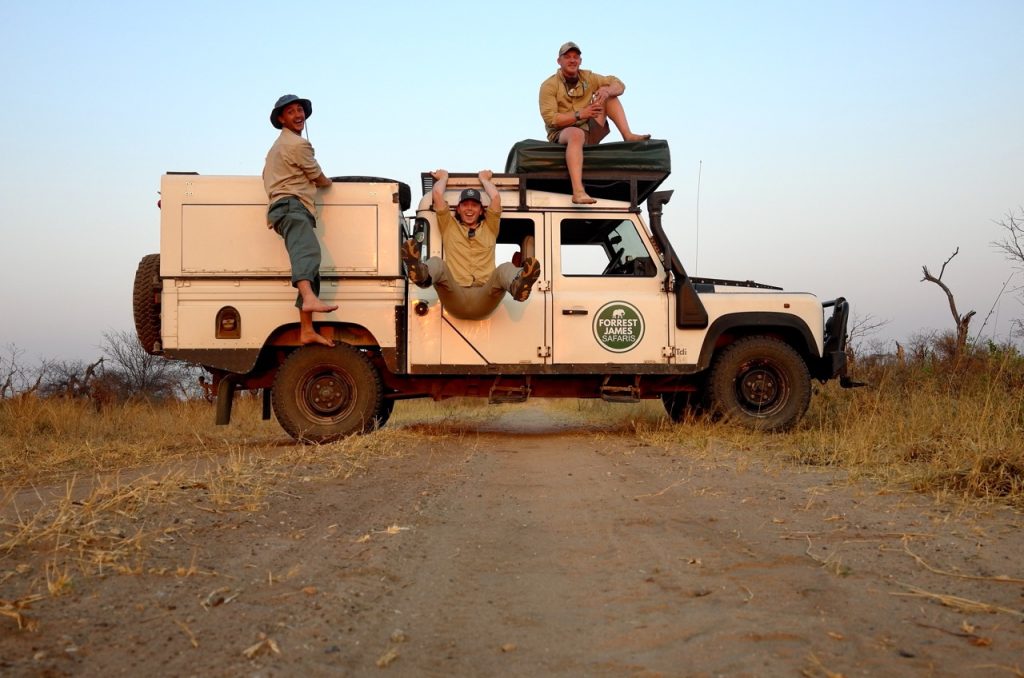
What do you like most about NomadMania?
I love that it isn’t just looking at 193 countries and instead 1301 regions. This feeds into one of my favourite expressions my dad tells me ‘You have only been where you have stood’. Just because I have visited 193 countries it doesn’t mean that that’s it, I have barely scratched the surface.
Even if one day I’ve visited 1301 regions, what about all the beaches, and world heritage sites? NomadMania shows there’s always more to a country or a place than just toe-tapping. For all of us travellers, I am sure this keeps us travelling.
As well, I often love flicking through the rankings, especially to find other young travellers to follow on social media who are doing cool things that will inspire me.
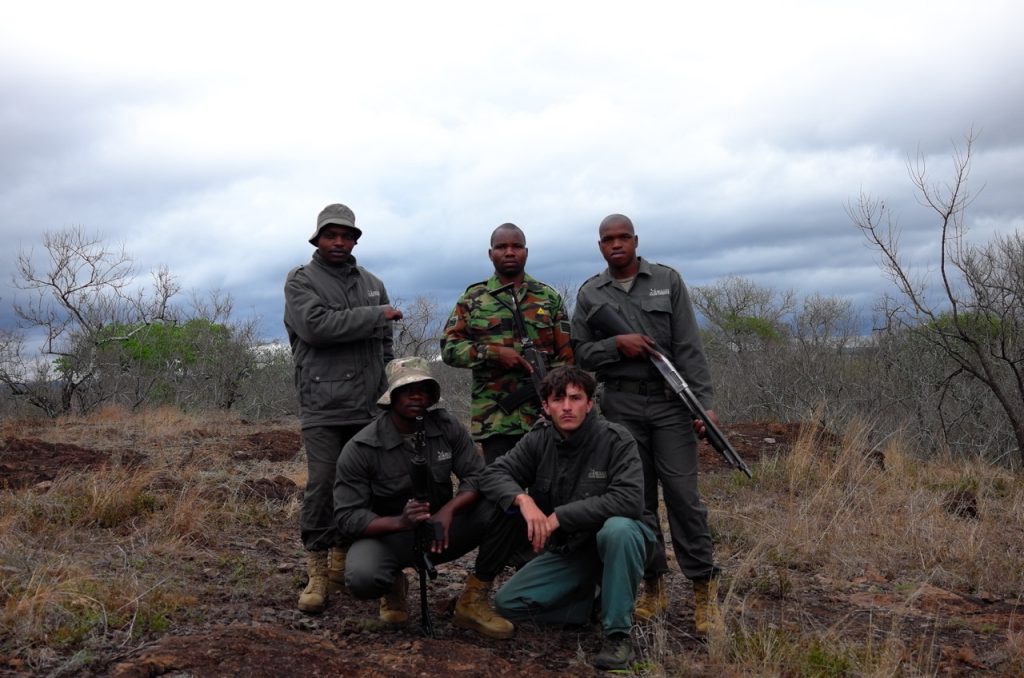
And finally our signature question – if you could invite any four people to dinner, who would you invite and why?
Cerys Matthews – An incredible conversationalist, with a globe-spanning record bag who is both interesting and interested in all corners of art, culture, and literature.
Wilfried Thesiger – I have read all his books in the last few years and have fallen in love with him for his exceptionally rich accounts of his journeys and his unabashed disdain for progress. I’m sure he would beguile us all with his stories and would probably be a stickler for banter which would add a funny edge to the evening.
Anthony Bourdain – A distinguished traveller and exceptional chef, there’s no way I’m cooking with the crowd I have around and I’m sure Wilfried would not be too impressed with a faux-Chinese takeaway, so we need a chef and who better than Anthony with his quick wit, exceptional stories and a penchant for a drink and a smoke.
A mate – doesn’t matter who, anyone who can get over from work in time, I just need someone on my side in case it all goes wrong and preferably who can be a good doubles partner for pool.
